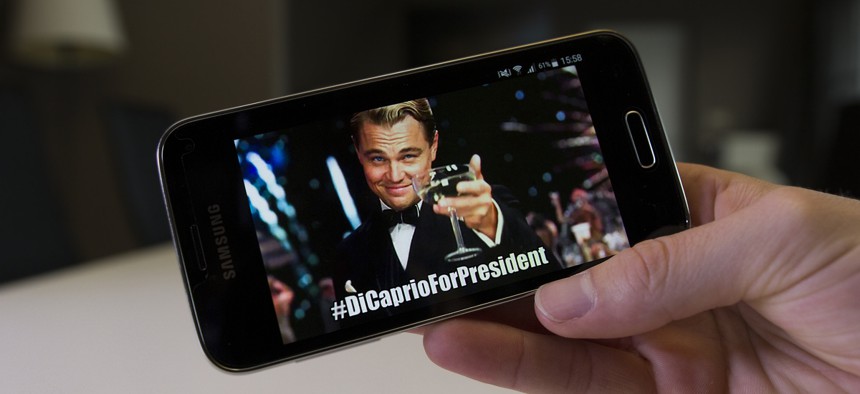This Trend in Teen Communication Just May Make the World a Better Place

ThomasDeco/Shutterstock.com
The rise of the wholesome meme is just one small part of a broader movement towards internet positivity.
Social media used to be a place where people could go to post photos of cute animals, link to weird articles, and share mundane status updates with friends and relatives. But as events such as the 2016 US presidential election have shown, social media has tipped into feeling primarily like a breeding ground for messages of hate and a forum for bullying.
In response to the onslaught of crushingly negative content, a trend among younger users has emerged—highlighting and sharing only messages that are dripping with positivity. Suddenly, for almost every gloomy trend that has percolated on the internet, there now exists a positivity-promoting counter meme.
Memes—images with pithy captions that are meant to encapsulate relatable scenarios and emotions—often evoke visceral reactions in those who identify with them. It’s a little like that feeling you get when you recognize yourself in a comedian’s joke. Memes are “a way for people to express themselves through a different channel,” said Tumblr-star-turned-media-consultant Jason Wong. “They’re the emojis of real life.”
WholesomeMemes, which has an Instagram account with over 22,000 followers, was among the first of these jolly promoters. They often feature animals, babies, and cartoons. The comment thread beneath them is filled with people tagging their friends and phrases like “reminds me of you” or just “us.”

For a long time online, it seemed like only the snarkiest and most deprecating of memes would get a share; if a post wasn’t biting or cruel enough, it didn’t cut through. But in 2017, wholesome memes began morphing insults into encouragements—small acts of polite defiance against the tide of negative rhetoric spread on the internet. The original Instagram account’s administrator, who wants to remain anonymous, attributes the popularity of this trend to the shareable nature of those memes. “People want to feel good and they want to make their friends, family, and other close ones feel good,” they wrote. “Having a positive impact is what makes these memes popular.”

Wholesome-meme accounts and threads now exist across a number of social-media networks including Reddit, Twitter, Tumblr, and Facebook. Over 1 million people have subscribed to these platforms in various forms in order to see images that carry messages of self-love and support for others, and give advice on maintaining a positive outlook.

Social-media networks are transitioning into support networks. According to the Pew Research Center, 73% of teenage girls use social media as a means to gain support from peers. This demographic, which has in recent years carried a reputation for cyberbullying, is now using social media to care for each other and feel better connected and more informed about the lives of their friends. Facebook statuses have become earnest reflections and opportunities for meaningful discourse. The site’s status bar permanently poses a question that even people who care about each other sometimes forget to ask: “What’s on your mind?” And this phenomenon is not limited to girls: 68% of all teens reported receiving support on social media during challenging times.

The rise of the wholesome meme is just one small part of a broader movement towards internet positivity. In the early 2010s, the body-positivity movement emerged as a direct response to rising rates of eating disorders and body-image issues. What started off as a hashtag has evolved into an advocacy group that influences the content and advertisements from companies like Dove, Aerie,and Target. For every hate page that emerges on Facebook (which recently re-committed itself to taking action against hate speech), there exists a “compliment page” for a given high school or college community. These pages, often run by teenage girls, have changed the way in which people communicate offline as well as online by providing a forum for positivity. In this way, the emergence of the wholesome meme is just the latest way in which social media has become a proponent of good.
In a time of unrelentingly negative news, and of social media platforms that are flooded with images normalizing feelings of self-loathing, small acts that promote positivity in the world may be the quiet revolution we all need.





